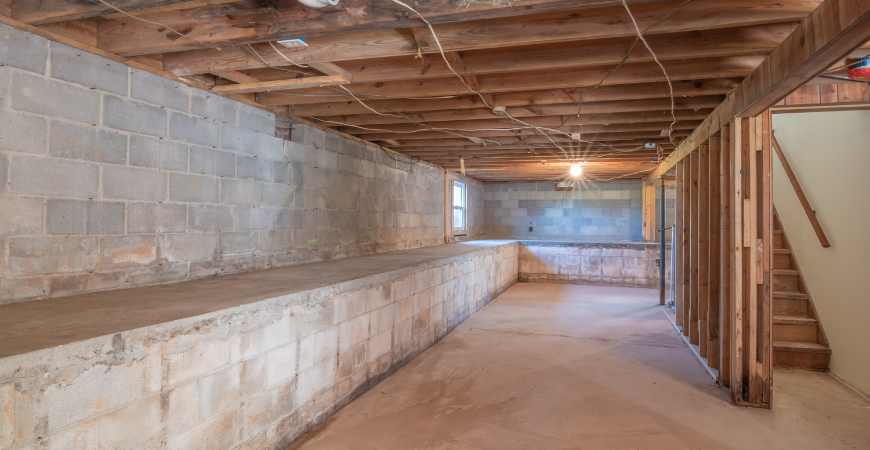Within city settings, in areas where space is at a premium and the weather can be harsh, effective waterproofing strategies are crucial for upholding the integrity of houses. Water infiltration not only threatens the physical soundness of properties but also adds to a host of expensive issues, ranging from fungal growth to foundation damage. As a homeowner, understanding the necessity of comprehensive waterproofing measures can save you thousands in fixing costs and make sure your living space remains safe and pleasant.
This piece explores creative waterproofing strategies catered for metropolitan homes, exploring into the basics of why waterproofing is necessary and what you need to know to shield your home. We will clarify common misconceptions, identify signs that your home might demand urgent action, and guide you through both DIY fixes and contractor options. Whether it's protecting your cellar from inundation or ensuring your roof is prepared to withstand the elements, we've got you supported with the definitive guide to modern waterproofing methods.
An Essentials of Moisture Protection: An Guide
Waterproofing is a crucial process for protecting houses and structures from water damage. https://aluneed.ca/ entails techniques and substances made to stop water intrusion, thereby protecting the integrity of structures and improving overall durability. Ignoring waterproofing can lead to significant problems like mold development, foundation damage, and costly repairs. Comprehending the necessity of waterproofing is the first action towards maintaining a secure and wholesome living environment.
The process of waterproofing differs depending on the area and specific needs of a building. Essential locations that often require focus include basements, ceilings, exteriors, and external buildings. Each area has distinct requirements and issues that must be addressed to effectively stop water from penetrating. This makes it crucial to evaluate the individual needs of a property and implement targeted waterproofing plans.
Putting money in waterproofing doesn't just safeguard a property but also adds to its thermal efficiency. Proper waterproofing can enhance thermal insulation, reduce heating and cooling expenses, and promote better indoor air quality by mitigating moisture issues. Obviously, waterproofing is not just a safeguard—it is an integral aspect of prudent homeownership that can save money and improve the quality of life for occupants.
Comparative Analysis: DIY vs. Professional Waterproofing
When evaluating waterproofing options, homeowners often weigh the benefits of tackling the project independently against hiring experts. DIY waterproofing can be appealing due to possible cost reductions and the satisfaction of completing a project on their own. Many property owners find success in small-scale areas, such as restrooms or patios, using easily accessible waterproofing products. However, this approach requires a substantial investment of time and energy, along with a desire to understand the details of proper techniques to prevent common mistakes that could lead to insufficient protection.

On the other hand, professional waterproofing solutions bring expertise and experience to the table. Experts are typically well-versed in various waterproofing techniques and products, ensuring the job is done efficiently and properly. They can precisely assess the specific needs of your property, identify potential issues, and implement thorough solutions that Do-It-Yourself methods might overlook. Although this option involves elevated upfront costs, it may save homeowners from costly repairs down the line due to water damage that resulted from incorrect installation.
Ultimately, the choice between DIY and expert waterproofing hinges on factors such as the complexity of the job, the property owner's skill level, and their financial capacity. For small repairs or maintenance, DIY approaches might be sufficient, but for more extensive projects or areas prone to significant water intrusion, investing in professional services could provide extra peace of mind and long-lasting results. Choosing the appropriate approach is essential to ensuring optimal protection against water damage for city homes.
Long-Term Benefits of Efficient Waterproofing Methods
Allocating resources in efficient waterproofing solutions offers a variety of lasting advantages for city residences and buildings. One of the most significant benefits is the avoidance of costly moisture damage restorations. Excessive moisture can lead to structural integrity problems, mold growth, and damage to property contents, which can accumulate over time. By addressing moisture-proofing appropriately, property owners can retain thousands of dollars that would otherwise spent on major repairs and rehabilitation.
Another vital benefit of adequate waterproofing is the enhancement of real estate worth. Homes and properties that are properly kept and free from water damage are more attractive to potential buyers. A building with sound waterproofing measures in effect signals to buyers that the structure has been cared for, making it more likely to hold its value or even appreciate over the years. This is particularly crucial in highly competitive urban real estate markets where first impressions can significantly influence property values.
Effective waterproofing strategies also contribute to improved energy efficiency. Moisture and leakage can diminish insulation, resulting to increased heating and cooling bills. By preventing water leakage and ensuring a dry environment, waterproofing helps to optimize a building's overall energy performance. This not only lowers utility bills but also promotes environmentally friendly practices, matching with the growing emphasis on green construction and home maintenance.
